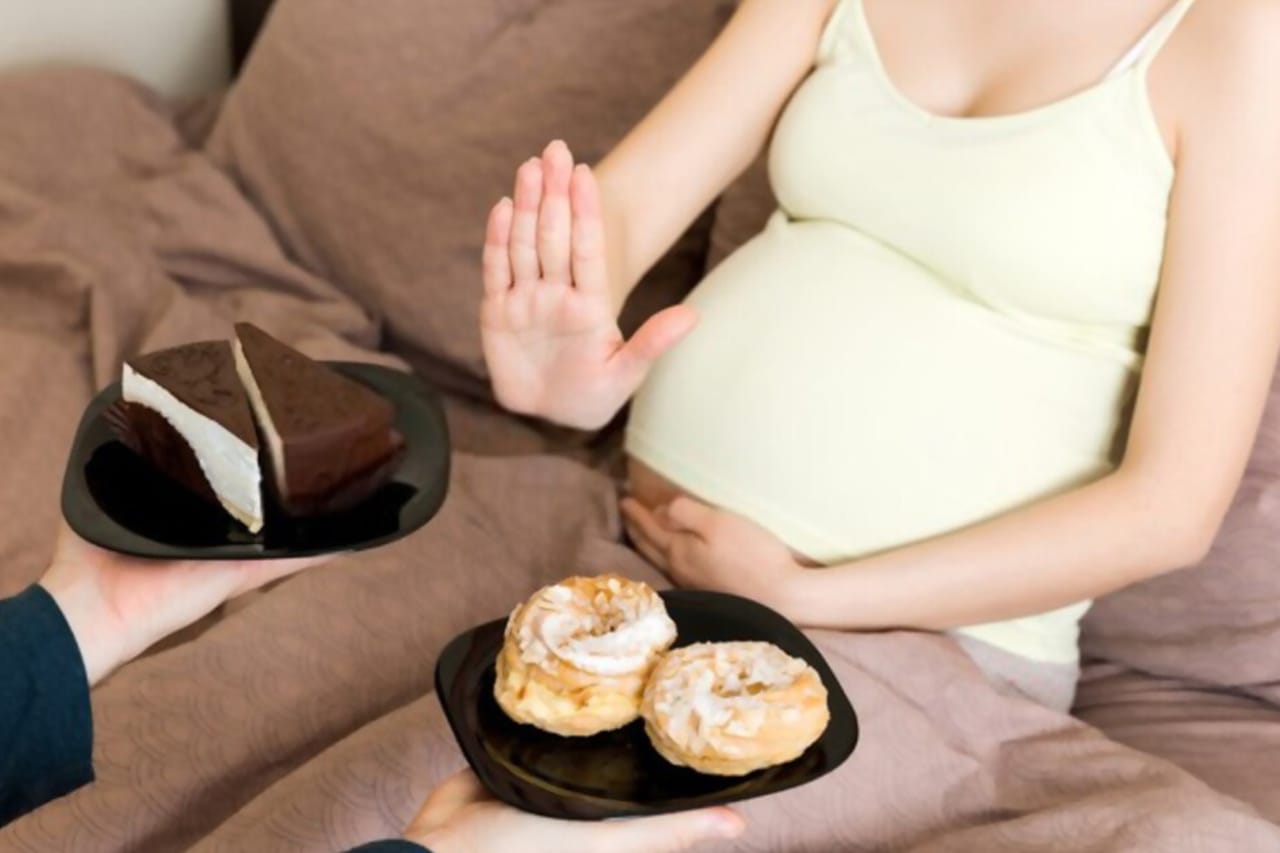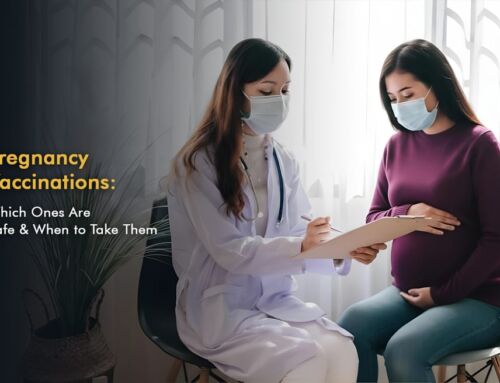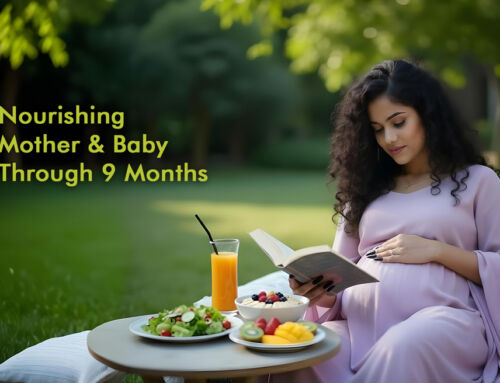|
Getting your Trinity Audio player ready...
|
Now That You’re Eating for Two, What Not to Eat and Drink Is Very Important!
Now that you’re eating for yourself and your baby, you’re probably focused on choosing wholesome foods that’ll help you feel best and support your growing baby. But what foodsto avoid during pregnancy and what drinks to avoid when you’re pregnant are so important. Thankfully, there’s more you can eat than you can’t. While your baby can benefit from all the healthy nutrients you’re nibbling on, a baby can also be affected by illness-causing bacteria that could be there in certain foods. So, when you’re pregnant, it’s best to be cautious and avoid items that could potentially make either of you sick or affect your little one’s growth and development. Thankfully, knowing what’s safe and what’s not is easy to know. Let us see what foods and drinks to avoid during pregnancy, plus what to do if you accidentally eat or drink something you are not supposed to be pregnant with.
Why Should You Avoid Certain Foods During Pregnancy?
- Some foods are more likely to carry illness-causing bacteria like Listeria, Salmonella, or E. coli. at the same time, your immune system is weaker during pregnancy.
- The fact is also that foodborne illness-causing bacteria can cross the placenta. And since your baby’s immune system isn’t strong enough yet to fight off the germs, the baby is at risk of developing an infection or even birth defects.
- It’s important to know that alcohol and high-mercury fish, for instance, won’t make you sick, but can negatively impact your baby’s development.
- Fruits are considered to be healthy, but it’s important to know what fruits to avoid when pregnant.
Foods to Avoid When Pregnant
Excess Caffeine
Consuming large amounts of caffeine during pregnancy may increase the risk of miscarriage or low birth weight, so limit your intake of caffeine, to less than 200mgm/day. Caffeine is a chemical found in many foods and drinks, including coffee, tea, and cola. Caffeine is rapidly absorbed and crosses the placenta freely, so maternal caffeine exposure severely disrupts embryo implantation. Daily consumption of caffeine will affect the baby in the womb, the baby will be small for age or at risk for intrauterine growth restriction. Caffeine passes through to the placenta, so it raises their heart rate and makes them more alert. Too much caffeine can also interfere with your body’s ability to absorb iron, which can lead to Anaemia in the future.
Raw or Underdone Seafood
Raw or undercooked fish and shellfish are more likely to contain harmful parasites and bacteria. Eating these could lead to foodborne illnesses like listeriosis, toxoplasmosis, and salmonella. Pregnancy changes your immune system. Some seafood, fish such as shark, swordfish, king mackerel, and tilefish — can contain high levels of mercury. If you eat fish high in mercury, it can accumulate in your bloodstream and which could damage your baby’s developing brain and nervous system.
Unwashed Fruits and Vegetables
Eating fresh vegetables has important health benefits. But there are two main risks of eating unwashed fruits and vegetables: bacterial contamination and pesticides. Sometimes raw fruits and vegetables may cause food poisoning from harmful bacteria such as Salmonella, E. coli, and Listeria.
Sprouts During Pregnancy
Pregnant women are asked not to have raw sprouts, even though they are highly nutritious. Sprouting is a process of germination. The container in which you sprout becomes moist and warm, making it an excellent site for anything to grow. including contamination or infection including the presence of E. Coli bacteria or Salmonella, they will also grow simultaneously. These bacteria, if it enters the mother’s body, can cause illnesses that could even be fatal. Immunity is suppressed during pregnancy and expecting mothers should not challenge that. For pregnant women, it is safer to cook the sprouts before consumption. This will ensure the mother gets the desired nutrition without the fear of being infected.
Eggs During Pregnancy – Raw or Soft-Boiled Eggs
In the case of boiled, poached, or fried eggs, this means until the white has set and the yolk has started to thicken. This means that pregnant women can enjoy cooked eggs however, should avoid raw eggs. If you love a soft-boiled egg, the latest guidelines confirm that it’s safe for pregnant women, children, infants, and the elderly to enjoy a runny egg.
Alcohol
Any alcohol you drink reaches your baby through the placenta. While it’s well known that alcohol intake during pregnancy can seriously affect your baby’s development. It’s best to be on the safe side during pregnancy, know that alcohol enters your baby’s bloodstream in the same concentration as yours — and takes double the time to leave it — so if you drink, your baby is also getting alcohol.
What Fruits to Avoid During Pregnancy
There are many fruits not to eat during pregnancy for various reasons.
Pineapple
Pineapple contains bromelain that causes softening of the cervix. Having pineapple, in the last months, can induce contractions, leading to premature birth.
Papaya
Papaya can induce abortion. Consuming papaya during pregnancy is dangerous. Prima – a chemical in papaya that is responsible for uterine contractions – is present in raw papaya. Papaya strongly inhibits fetal growth. The consumption of raw papaya during pregnancy is strictly prohibited.
Drumsticks
Drumstick is rich in iron and vitamin, and they contain alpha-sitosterol, which hurts a baby’s development and growth. Consuming drumsticks during pregnancy is therefore harmful.
Radish
Raw radish is not safe during pregnancy. It is difficult to digest and also leads to gastrointestinal issues due to a lot of harmful germs present on its surface. If cooked, pregnant women can consume radish once in a while.
Packaged and Processed Foods
Ready-to-eat meals, cakes, biscuits, and other processed foods often contain preservatives and empty calories.
They may also contain bacteria that cause food poisoning.
Sugary Foods
Pregnant women need 300 additional calories every day. Overindulging in sweets, however, causes weight gain and gestational diabetes.
Black Grapes
Black grapes contain many resveratrol compounds present in their skin, which are toxic and can be harmful. Also, they are a bit difficult to digest, so having black grapes during pregnancy is not advisable.
Unpasteurized Dairy
Drink pasteurized and well-boiled milk only and use cheese that is made with pasteurized milk. Also, avoid fresh juices made in unhygienic places and have flown around the place.
Hing
Hing is commonly consumed, in Indian families. Overdose and regular use of food can cause vomiting, nausea, throat infection, swollen lips, burping, and gas forming.
Ajinomoto
Ajinomoto is a staple ingredient in Chinese and Indian street food, it is not healthy. It contains monosodium glutamate, which interferes with brain development during pregnancy.
Corn
Many pregnant women find the juicy, and crunchy taste of sweet corn appealing. Corn is an excellent source of dietary fibre. Eating corn during pregnancy promotes the brain development of the fetus and also improves your memory. You should take care not to go overboard while consuming corn, it has fatty acids which can increase the risk of heart ailment and indigestion. During pregnancy, you should eat fresh corn instead of canned or frozen corn.
Sesame Seeds
Consumption of sesame seeds causes the ovum to be ejected from the uterus. Hence sesame seeds are quite harmful to be eaten while pregnant, especially in early pregnancy.
Cornflour
Avoid items with high starch content, such as corn flour, food items with a high content of corn flour can cause harm to the growth and development of the baby.
Salty Foods
You might crave salty and spicy foods, and consuming salty foods will increase water retention, which will ultimately lead to complications like high BP during pregnancy.
Street Food
Avoid street food during pregnancy, control cravings for these types of foods as your body is vulnerable, and be careful about what you eat.
Premade Salads
It’s fine to make your versions at home make sure ingredients like egg and chicken are thoroughly cooked.
What If You Accidentally Eat One of These Foods While Pregnant?
Accidentally ate something you shouldn’t have? It happens sometimes. Call your doctor right away if you start to notice possible signs of food poisoning. Contaminated food usually makes you sick within one to three days after eating it. These include stomach pain, vomiting, diarrhoea, or flu-like symptoms such as fever, body aches, or headache.
If you’re feeling fine? You don’t have to call the doctor. There’s also no harm in calling, extra reassurance is great!
Last Words of Wisdom About What to Avoid During Pregnancy
When you’re pregnant, it’s essential to avoid foods and beverages that may put you and your baby at risk. Although most foods and beverages are safe to enjoy, some, like, unpasteurized dairy, alcohol, and high-mercury fish, should be avoided. Some foods and beverages like coffee, and sugary foods, should be taken in limited quantities to promote a healthy pregnancy.
Reference:
https://bebodywise.com/…
https://food.ndtv.com/…
https://www.apollocradle.com/…








